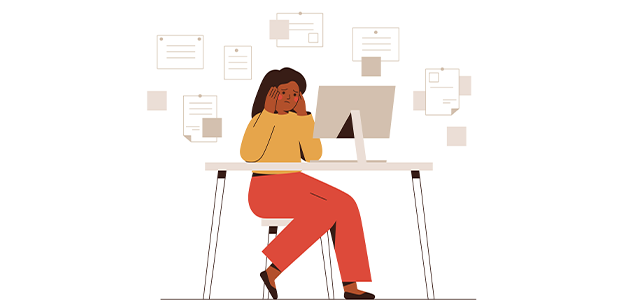
Stress at work leapfrogs financial stress as issue affecting most generations
A study by GRiD, the group risk sector body, has revealed that work-related stress and anxiety has become the leading health concern for most generational employee groups, except Gen X. This marks a shift from 2023, when financial worries topped the list for Gens X, Y (Millennials), and Z, and similarly in 2022 for Millennials and Gen Z.
The 2024 analysis shows that work-related pressures – such as overwork and future uncertainty – are the primary concern for 40% of Baby Boomers, 40% of Gen X, 44% of Millennials, and 39% of Gen Z. However, for Gen X specifically, stress from home life, such as caregiving responsibilities and relationship struggles, has become the top concern, with 42% of employers highlighting this issue.
While financial stress is no longer the top concern for any generation, it remains significant. Employers still see it as a worry for 18% of Baby Boomers, 28% of Gen X, 35% of Millennials, and 33% of Gen Z. This may reflect some easing of financial strain as wages have started to align with inflation and energy and food prices have stabilised.
The report also highlights the increasing overlap between work and home life, especially with the rise of hybrid working. Stress in one area can easily affect the other, blurring the lines and intensifying the impact on overall employee wellbeing.
Katharine Moxham, spokesperson for GRiD, said: “It’s interesting to see that in employers’ eyes, the main driver for employee stress is now due to work itself rather than being financially-related. This is something that employers need to keep a close eye on as it is in their control and an area in which they can make a real difference for staff.”
Employee views
These employer views broadly resonated with employees themselves.3 When employees were asked directly about their biggest concerns for their own health and wellbeing this year (2024), those who were under the age of 60 all agreed that stress and anxiety related to work was the most pressing issue for them. Over 60s however, cited serious ill-health (such as cancer or heart disease) and living with long-term chronic illness or health conditions (such as diabetes) as their most pressing health and wellbeing concerns.
Support for all
Although employers and employees appear to be aligned in their thinking on this it’s important not to make generational assumptions and to ensure that support is as broad as possible in order to reach cohorts who could be overlooked, such as those balancing work with serious illness or those with caring responsibilities.
This support can be found in a number of employee benefits including group risk benefits (employer-sponsored life assurance, income protection and critical illness). In fact, group risk benefits are a particularly comprehensive and cost-effective way for employers to meet these employees’ needs.
When selecting a provider to support employees specifically with stress and anxiety, it is important that counselling is available 24/7 which is usually the case in group risk benefits via an EAP. Preventative health support is also key which can be delivered in a number of ways, including by app and can focus on nutrition, sleep, relaxation, exercise and health checks. Ideally, support will also be channel agnostic so that a user can benefit from face-to-face support, telephone support as well as online and app-based technologies to improve their health and wellbeing.
Katharine Moxham warned: “As our research shows, the issues that affect staff change over time – being in a particular demographic does not necessarily pinpoint a specific health and wellbeing concern: external factors also have a significant impact and these are harder to predict. With this in mind, employers need to ensure that their employee benefits programmes are comprehensive and will meet the needs of all staff at all times.
For more startup news, check out the other articles on the website, and subscribe to the magazine for free.

